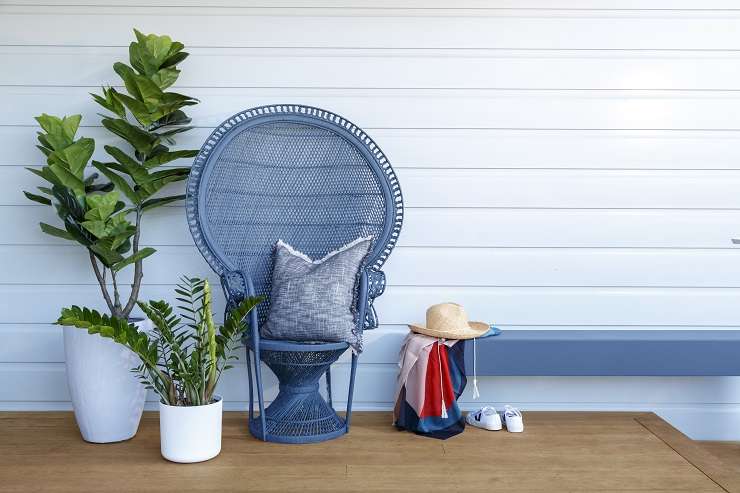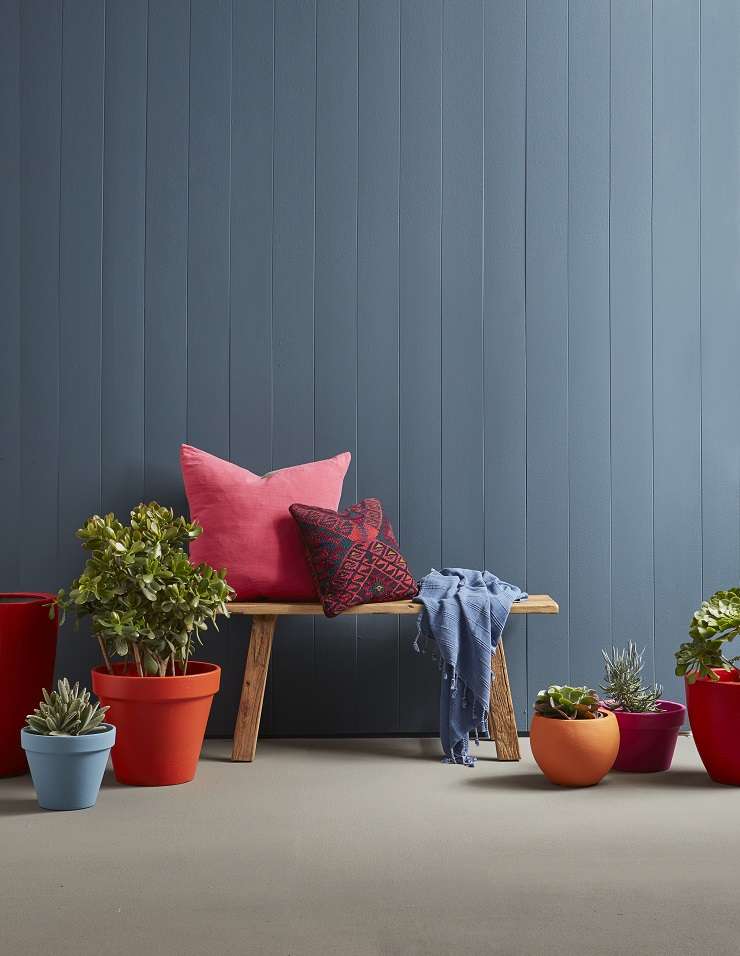They’re as Kiwi as buzzy bees and pineapple lumps. With our temperate climate, it’s no surprise that New Zealanders are firmly attached to our timber decks, which offer seamless indoor-outdoor flow.
In the past twenty or thirty years, decks have become one of a property’s most important defining features - eagerly sought after by home buyers or renovators looking for another living space. Decks are ideal for a morning coffee, a late afternoon glass of wine or relaxed al fresco entertaining with friends and family.

A deck becomes another living room with the help of smart paint finishes and decor. Photo / Resene
Start your property search
The good news is that in order to reduce red tape and lower compliance costs for homeowners, the Building Act 2004 has relaxed some of the rules surrounding small to medium construction, and that includes decks. These days, consents aren’t always necessary as long as your projected deck is less than 1.5 metres tall and is attached to the existing home on at least two sides. If it’s less than 900 millimetres from the ground it doesn’t need to be fenced because it’s considered that a person falling from that height is unlikely to be seriously injured.
However, it goes without saying that you always check with your local council before commencing work, because even if your deck doesn’t need a building consent, it may sometimes require a resource consent.
Naturally, safety and sturdiness should always be top of mind in creating your own private backyard getaway.
To get started, bear in mind that even if a prior consent isn’t always required, your deck must still meet all of the Building Code rules and comply with other relevant legislation. It’s also essential that the build doesn’t damage public service drains if the deck’s foundations lie close to those pipes.

Use non-skid finishes to keep your deck safe. Photo / Resene
Building your own deck is perfectly possible as it’s a fairly straight-forward endeavour and online video tutorials are generally very helpful. If it is your first time it might be wise to have a professional builder construct the framework then you can complete the relatively easy part of the job: laying the timber decking, by yourself. When you do your budgets, remember that for a 100 percent DIY deck a lot of tools are required and buying or hiring them can be expensive.
Using quality timber is essential because your deck needs to be able to stand up to all kinds of weather. Pine always works well but it won’t last forever, while hardwoods such as kwila and vitex are good, long-lasting materials.
Resene experts recommend making sure that a new deck is painted or stained using quality products such as Resene Non-Skid Deck & Path.
Dark colours attract a lot of heat, especially on horizontal surfaces, so choose a light to mid colour. Opting for a Resene CoolColour variant, which has special pigments that reflect more heat than regular paint, will help reduce heat build-up.
After a year or so, even a nice new deck can become dangerously slippery, especially in winter if adjacent trees have shed their leaves. Moss can be a problem too. Avoiding water-blasting decks though, as this can damage the timber.
Before re-staining, thoroughly banish any moss and mould, otherwise it will simply come through the new finish. These nasties can only be banished with careful use of an appropriate ‘killer’ product like Resene Moss & Mould Killer.
Mark Collins at The Decking Specialist says that these are exciting times for homeowners because many new materials being used in decking.
“It’s no longer just timber – we’re also doing decks in tiles, turf or hardwood.”
Collins says that composite timber and plastic decking is growing in popularity.
“It’s hard-wearing and low maintenance and although it can get a bit hot in the sun, it’s affordable and will last much longer than timber.
“There’s nothing to stop you from building your own deck. By using professionals such as us, you get the benefit of our long experience and we can suggest materials or solve problems – plus we keep up-to-date with all the codes and consents.”
For more tips and advice for your projects, see the habitat by Resene website, www.habitatbyresene.co.nz or visit your Resene ColorShop.




